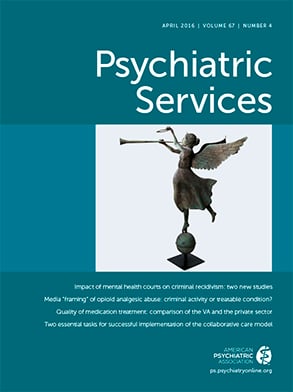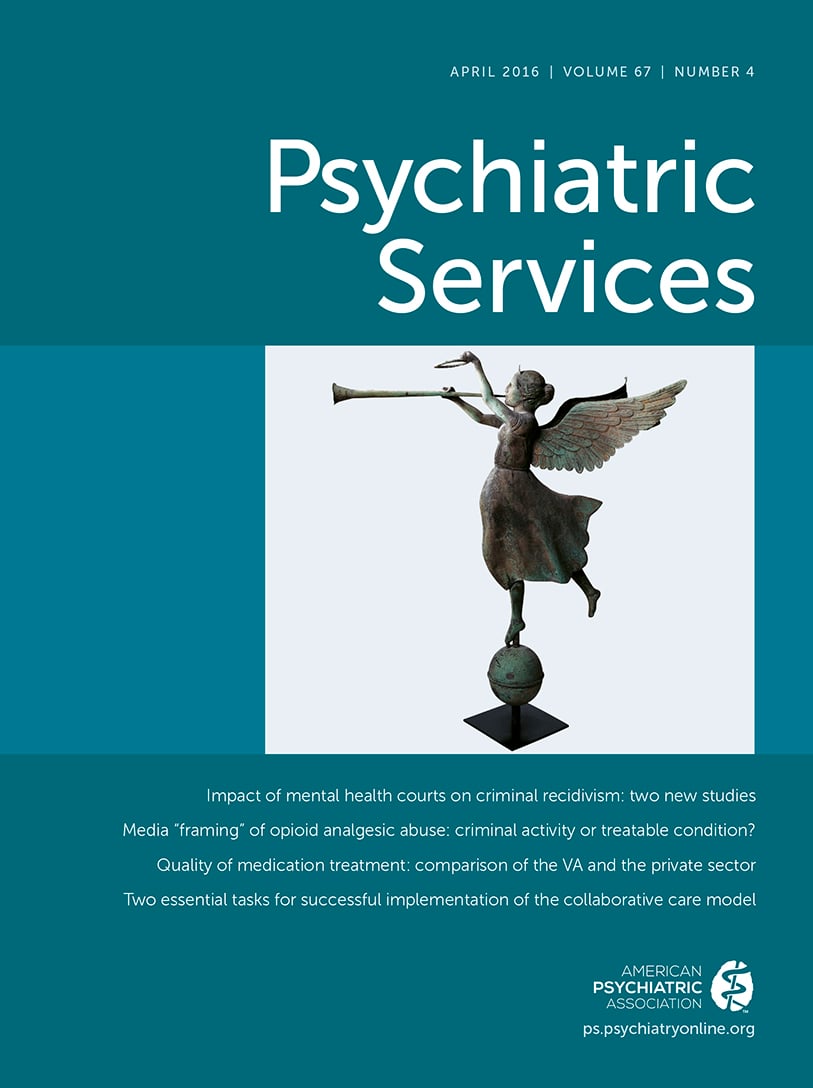Mental health courts (MHCs), a variant of problem-solving courts, have continued to proliferate, surprisingly without robust evidence of their effectiveness or for their mechanism of action. Broadly, the theory of action is that the court uses its moral authority to leverage privileged access to mental health and substance abuse services, enforce treatment adherence, and tightly monitor and sanction criminogenic behavior. Evidence is accumulating that clients under such a regime have fewer rearrests, but more elusive is the evidence that the behavioral health treatment itself makes a difference—that clients are less symptomatic, function better, and stay out of the trouble that is often attributed to their behavioral health conditions. As a result of these null findings of a treatment effect, some have suggested that behavioral health treatment and improved functioning may play a minimal role in the benefits seen among MHC participants and, rather, that informal counseling by court personnel and community corrections personnel may be the primary mechanism of action.
In this issue, an article by Han and Redlich from the multisite, MacArthur MHC Project provides new evidence that treatment may make a difference. Until now, study investigators reported reduced rearrests at the four MHC sites but, vexingly, no detectable treatment effect. In this new study, arrestees in the MHC and treatment-as-usual groups self-reported the types of behavioral health services they received six months before and after MHC initiation. Both groups received increased behavioral health services in the six months after arrest, but that had no effect on rearrests in the treatment-as-usual group. In the MHC group, rearrests were reduced apparently as a result of increased service use, compared with the prearrest period, combined with improved medication compliance. This finding suggests that the court enhanced the benefit of treatment in reducing rearrest at least partially via enhanced medication compliance. Such a mechanism has been reported in studies of involuntary outpatient commitment, another form of mandated treatment, in which court involvement has been found to yield benefits in reducing hospital recidivism. In those studies, persons with severe mental illness under court order were, like MHC participants, more treatment adherent and reported receiving reminders about adherence from multiple sources: the court, case managers, and their families. Studies of involuntary outpatient commitment have also reported that one of its greatest benefits is the linkage to more intensive services. Indeed, the New York State assisted outpatient treatment program has recognized this and stipulates that all participants receive either assertive community treatment or intensive case management, at a minimum. As a result, the court order not only enhances treatment adherence but also leverages the provision of more intensive treatment.
Han and Redlich’s analysis also offers insights into the extent to which MHCs leverage privileged access to behavioral health services for participants with complex comorbid conditions. Here the findings, if generalizable, are very sobering. Participants at the four MHC sites may have received slightly more behavioral health services than the treatment-as-usual group—but vanishingly little more in absolute terms. In the six months postarrest, the MHC group received an average of 1.08 individual mental health counseling sessions, .68 sessions of group therapy, 1.28 medication management services, and nearly imperceptible amounts of substance abuse services—in a population with a prevalence rate of comorbid substance use disorders of roughly 75%. Despite evidence that cognitive-behavioral therapies can reduce criminogenic behavior, few of the MHC participants could have been receiving such treatment. In some ways this is not surprising because MHCs typically do not have funds to purchase treatment and must compete with other priority populations for scant public treatment resources. Most MHC clients are indigent as well. One MHC judge reported, with some irony, that MHC treatment plans for her clients had to be preauthorized by the county’s managed behavioral health care vendor. In such a scenario, criminal justice involvement may not make a compelling case for behavioral health services under standard utilization review criteria.
Advocates for MHCs and other diversion programs speak emphatically about the need to access evidence-based treatment for justice-involved clients. The good news is that better access to behavioral health services under court supervision can make a difference. The sobering news is that access to reasonably adequate treatment is a long way away. Now that MHCs have been firmly established in the growing list of interventions for persons with severe mental illness with criminal justice involvement, the focus needs to turn to how MHCs can effectively leverage evidence-based treatment for this important population.

